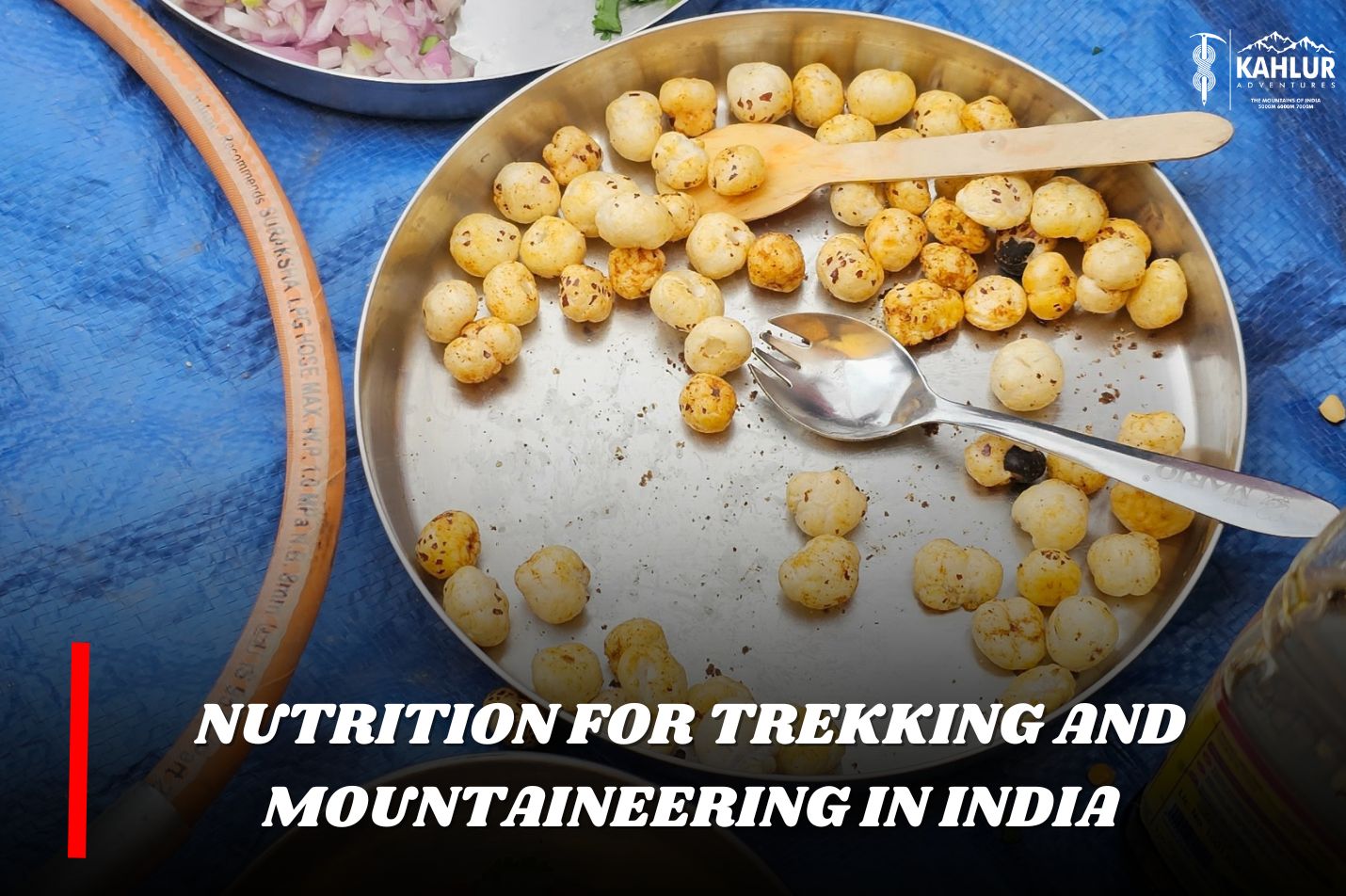
07 Feb Nutrition for Trekking and mountaineering
Overview:
For both recreational and sporting reasons, climbing high-altitude mountains is a tremendous physical challenge. High altitudes are defined as those over 4000 to 5000 meters, and extreme altitudes are defined as those above 5000 meters. You must be mentally, emotionally, and physically ready. Getting the proper equipment and preparing oneself through exercise and technique practice are crucial components of mountain climbing. However, eating the correct foods is crucial if you want to be able to build strength during training and climbing days. A healthy diet can increase your total ability to exert effort by 20%. Although it is easier said than done, you may wish to commit to this regimen of eating healthily and exercising just enough to keep yourself physically fit when you are in the mountains and at high elevations. Another aspect of your performance is your diet.
According to research, climbers who ascend high-altitude mountains can burn between 6,000 and 10,000 calories every day. It’s quite common to lose weight, and you’ll need to swiftly regain your power. Your digestive system won’t function as it would at a lower elevation. Food will be rejected by your system because it does not want to work hard and you will have to force yourself to eat. When it comes to nutritional value, carbohydrates are the must-haves in your diet but don’t forget about proteins and fats too. During your climbing hours, you will need to water frequently, eat a lot of easy-to-digest carbohydrates for snacks, and consume more carbohydrates and proteins for dinner at your camps. Your body uses the glucose it has stored to store fat, which it will use when necessary or during a strenuous effort.
Food Recommendations for High Altitude Mountaineering:
01) Foods high in carbohydrates include rice or whole grain goods, bread, pasta, sweet potatoes, potatoes, milk, quinoa, kidney beans, chickpeas, and fruits high in natural sugar (bananas, oranges, blueberries, grapefruit, and apples).
02) Additionally, you can pack conveniently packable, 90% lighter, naturally flavorful, and nutritionally valuable dried frozen meals. It is simple to prepare; simply pour boiling water over it, stir, and wait for ten minutes or so before enjoying it. This is quite useful since it greatly simplifies logistical planning. For mountaineering in particular, we suggest LYO FOODS because they have several excellent options.
03) Meats, tofu, eggs, lentils and seeds, almonds, and cheese are all sources of protein.
04) Sources of fat include olives, chocolate, butter or ghee, and dried meats.
05) It’s crucial to stay hydrated throughout the process. Since you will perspire a lot, we advise you to drink four to 6 litres of water each day. It is insufficient to simply drink ordinary water. Adding electrolyte-rich hydrating tablets to your water is essential. Products suggested include Nunu Hydration tablets and SIS Hydration pills.
06) Mini-meal breaks are essential when hiking or climbing for six to ten hours or longer. Within two to three hours, your body uses up all of the nutrients, so you’ll need to regularly refuel. You’ll need nutrient-dense, conveniently transportable, and non-cooking foods. It is strongly advised to consume bars, hydration pills, energy gels, chocolate, bananas, nuts and seeds, jerky, or dried meat. Prepare them each night and store them in a sealed bag or a convenient location in your backpack. You will feel more active for longer because these superfoods will provide you with the much-needed energy.
You must focus on your nutrition, particularly when you are climbing. When it comes to your trekking or excursion lunch or dinner, don’t forget to consume a lot of carbohydrates. Eat a lot of snacks, almost like a little breakfast, every two to three hours to keep your body energized and to stay hydrated. Avoid drinking alcohol, especially when you’re climbing. Although you may meet porters or Sherpas who have been climbing for years, keep in mind that their bodies have endured this every year. Comparing it won’t help, so keep it for last and enjoy your beer when you get back to base camp or the closest accommodation location after your climbing is done.
Kahlur Adventures Food List:
We at Kahlur Adventures provide the best food during the tour as well as at the basecamp, thanks to our own kitchen team who provides you tasty and hygienic food in the Indian Himalayas.
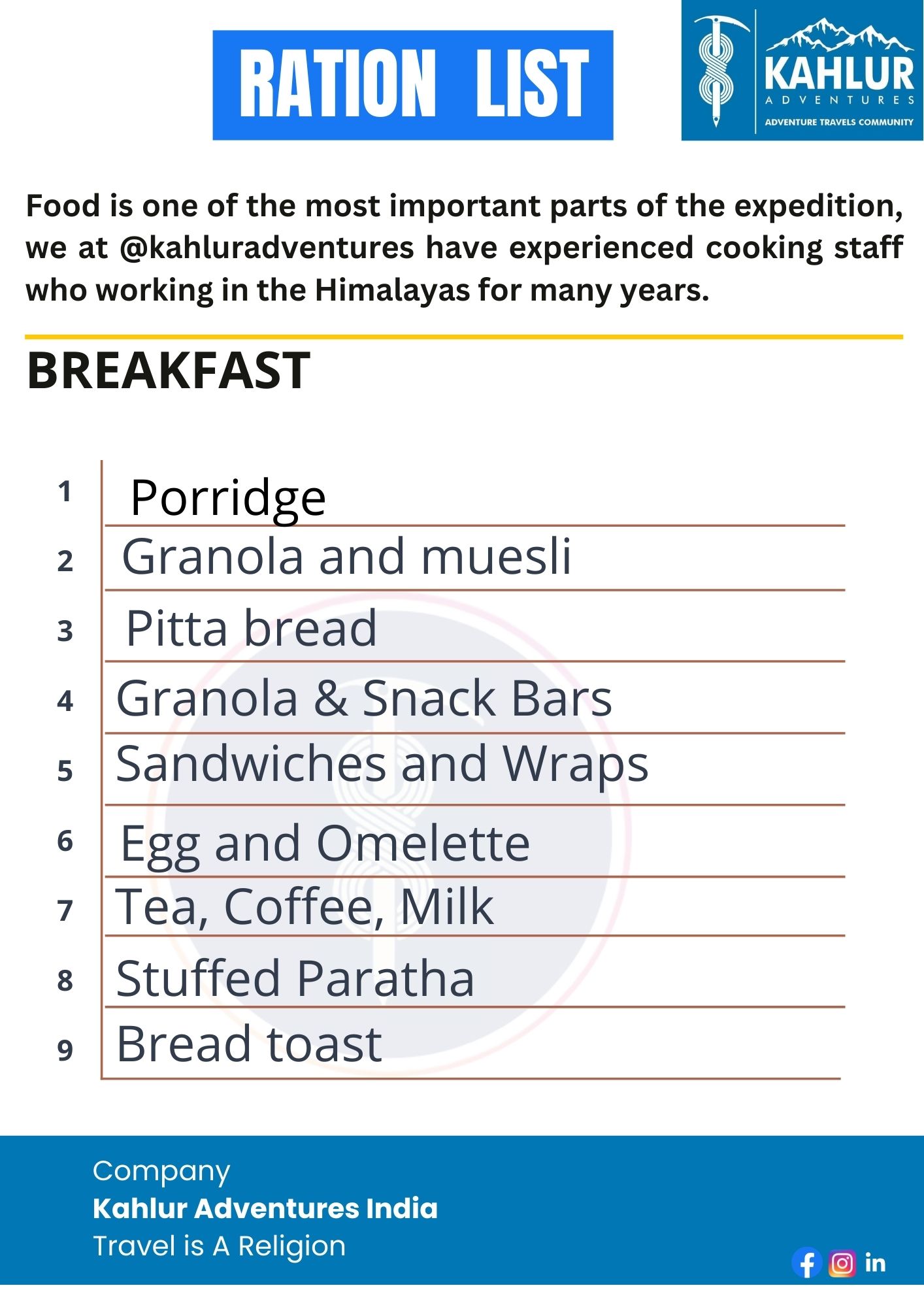
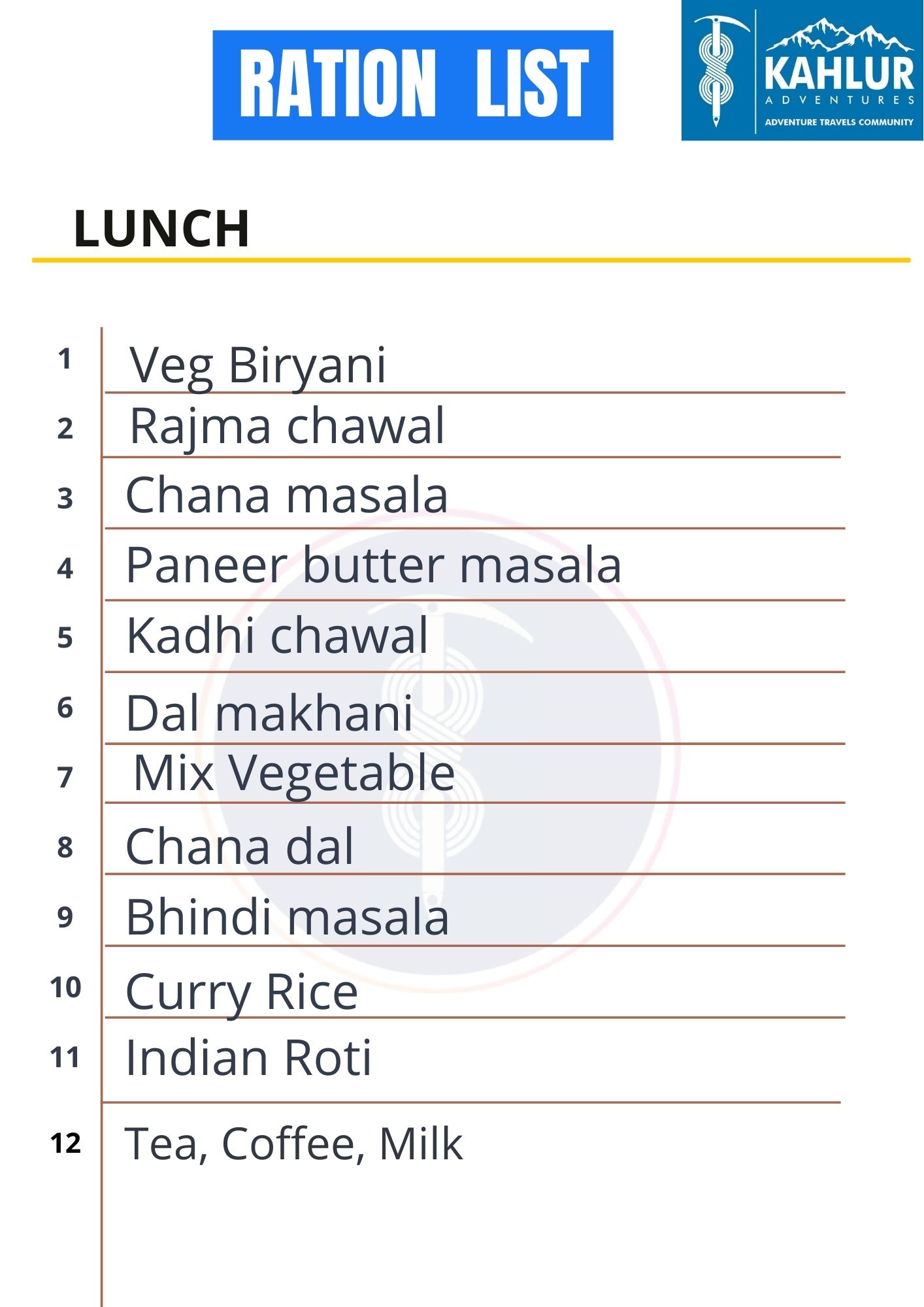
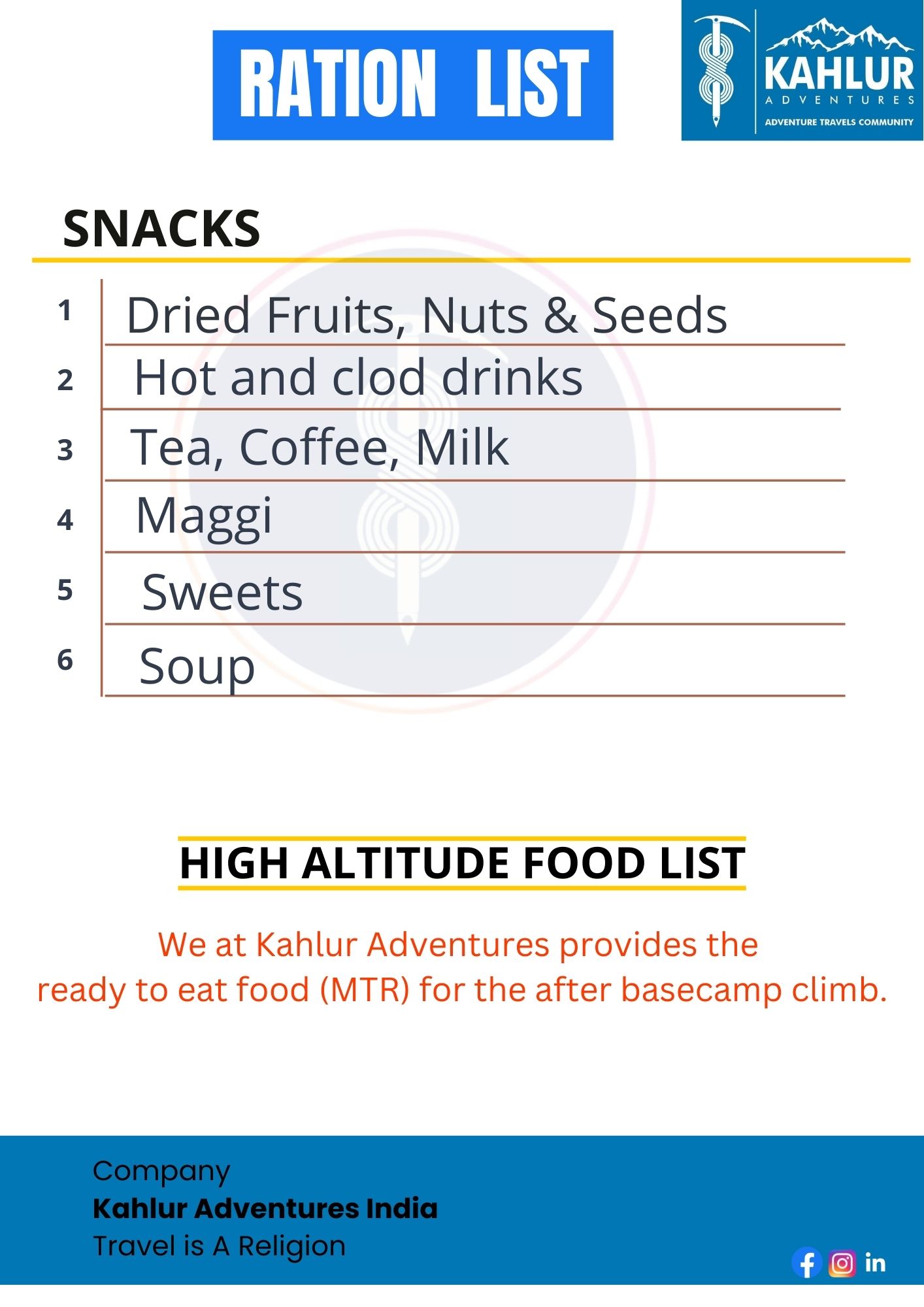
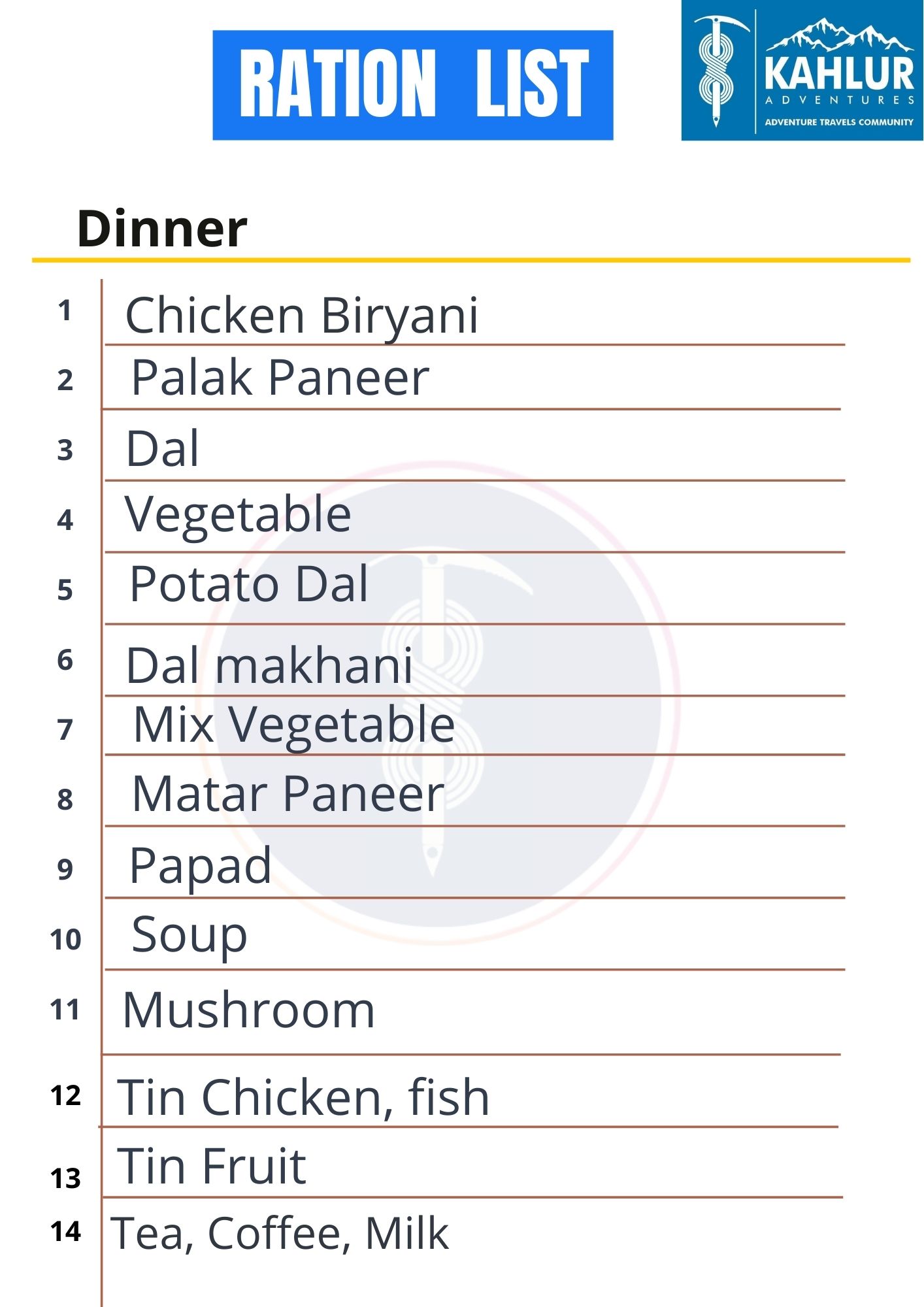
Don’t forget to bring your trash with you and dispose of it at your next village or place to stay. Urge your group to refrain from littering the mountains because it may never be possible to clear these secluded and pristine places of rubbish. Keeping the environment clean is our responsibility as travellers and mountaineers. Kahlur Adventure has always been an advocate of this ideology.
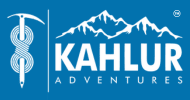


No Comments